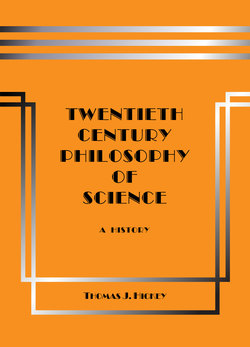Читать книгу Twentieth-Century Philosophy of Science: A History (Third Edition) - Thomas J. Hickey - Страница 91
На сайте Литреса книга снята с продажи.
4.11 Discovery Systems
ОглавлениеThe discovery system produces a transition from an input-language state description containing currently available information to an output-language state description containing the generated and tested new theories.
In the “Introduction” to his Models of Discovery 1978 Nobel-laureate Herbert Simon, one of the founders of artificial intelligence, writes that dense mists of romanticism and downright knownothingness have always surrounded the subject of scientific discovery and creativity. Therefore the most significant development addressing the problem of scientific discovery has been the relatively recent mechanized discovery systems in computational philosophy of science.
The ultimate aim of the computational philosopher of science is to facilitate the advancement of contemporary sciences by participating in and contributing to the successful basic-research work of the scientist. The contemporary pragmatist philosophy of science thus carries forward John Dewey’s emphasis on participation. But few academic philosophers have the requisite computer skills much less a working knowledge of any empirical science for participation in basic research.
Every useful discovery system to date has contained procedures both for constructional theory creation and for critical theory evaluation for quality control of the output and for restricting the size of the system’s otherwise unmanageably large output. Theory creation introduces new language into the current state description to produce a new state description, while falsification eliminates language from the current state description to produce a new state description. Thus both theory development and theory testing enable a discovery system to offer a specific and productive diachronic dynamic procedure for linguistic change in empirical science.
The discovery systems do not merely implement an inductivist strategy of searching for repetitions of individual instances, notwithstanding that statistical inference is employed in some system designs. The system designs are mechanized procedural strategies that search for patterns in the input information. Thus they implement Hanson’s thesis in Patterns of Discovery that in a growing research discipline inquiry seeks the discovery of new patterns in data. They also implement Feyerabend’s “plea for hedonism” in Criticism and the Growth of Knowledge to produce a proliferation of theories. But while many are made, few are chosen due to the empirical testing routines in the systems.
